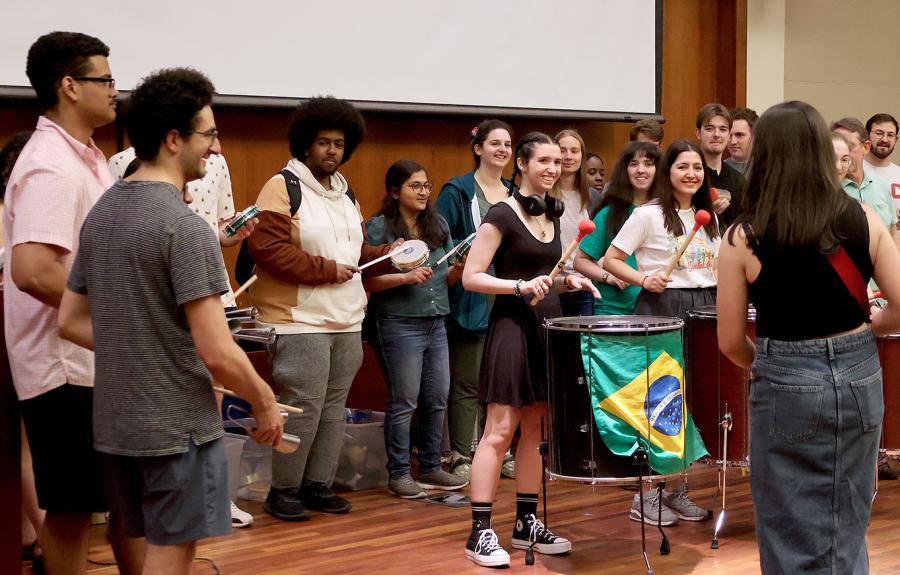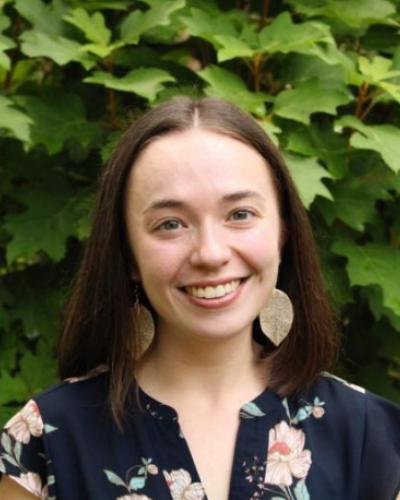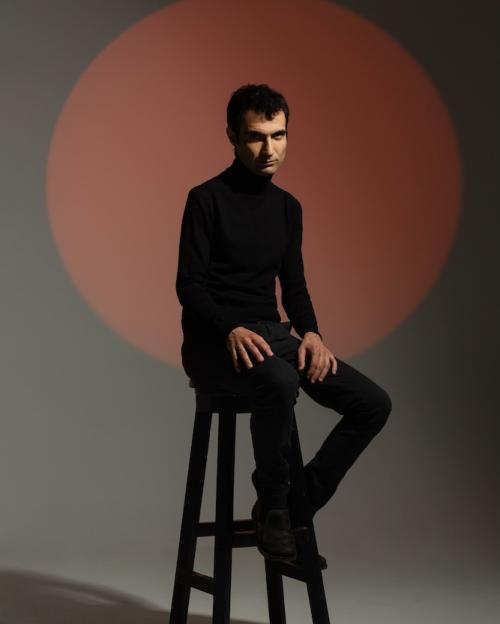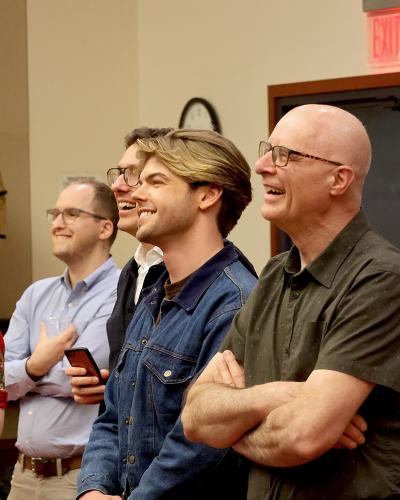A celebratory throng of students, staff, faculty, and members of the Cornell and Ithaca communities gathered in Lincoln Hall’s largest space on a Friday afternoon in the middle of May to mark Steve Pond’s retirement after a quarter century on the Cornell music faculty, nearly a third of that tenure spent as the chair of the department.
The banquet table was laden with food and drink and the other spaces of B20 not taken up by the invitees were given over to drums (steel, samba, trap set) and other instruments brought to swinging, sounding life by colleagues and students. As the event neared its close, Steve joined in, first in a languorous bossa nova, “Quiet Nights of Quiet Stars,” with colleague Paul Merrill on flugelhorn fronting a combo made up of students, then, at the head of the vibrant Brazilian music ensemble Deixa Sambar that he founded (and that he will continue to lead next year).
The day was glorious outside—the redbuds lingering on their vernal branches, the dogwoods in full display, handfuls of Cornell students seizing the moment to take graduation photos against backdrops of blossom—and the atmosphere inside Lincoln Hall glowed with music and tribute. It was in this very room, B20, that Steve had led so many rehearsals and taught so many of his popular, much-praised courses on jazz, popular music, and the musics of the African diaspora.
Organizer and emcee Kevin Ernste issued his welcome and encomium soon after the 4:30pm start. Current department chair Ben Piekut then spoke at eloquent length of the scholarly achievements of Steve’s path-breaking 2005 book, Head Hunters: The Making of Jazz’s First Platinum Album. Ben praised the volume’s expert musical and cultural analysis and the way it embraces and illuminates the “great collective achievement of jazz.” After thanking Steve for his service to students, to the department and to the university, Ben presented him with gifts that included an LP recorded live in 1966 by the visionary percussionist Milford Graves and jazz pianist Don Pullen. No one would appreciate this duo’s dynamism more emphatically than Steve, but the album sleeve also offered much blank white space for another kind of appreciation: epigrammatic thank-you notes from the assembled well-wishers written in many shades of Sharpie.
Former students, both undergrad and grad, beamed in heartfelt video tributes whose leitmotiv was not just the love of learning and music-making—but love for their cherished teacher, mentor, and friend. When it was time for music, Chris Miller led the Cornell steel band in a complex, sprawling, and extremely funky rendition of Herbie Hancock’s “Chameleon” from Head Hunters. Then Deixa Sambar played without Steve, and, however difficult it may have been for him not take up his drum, he beamed at what his people could do, his gift to them given back to him with irrepressible exuberance. Steve then admitted his equal affection for more subdued sounds and eased into that bossa of quiet stars. He took the microphone and spoke of his love of teaching and of his wife, Susan, who watched on a livestream, unable to be present at the festivities since having just contracted Covid. Finally, he joined his boisterous Brazilian band for an extended outburst of raucous, jubilant rhythm—both coda to a rich Cornell career and prelude to a music-filled retirement.






